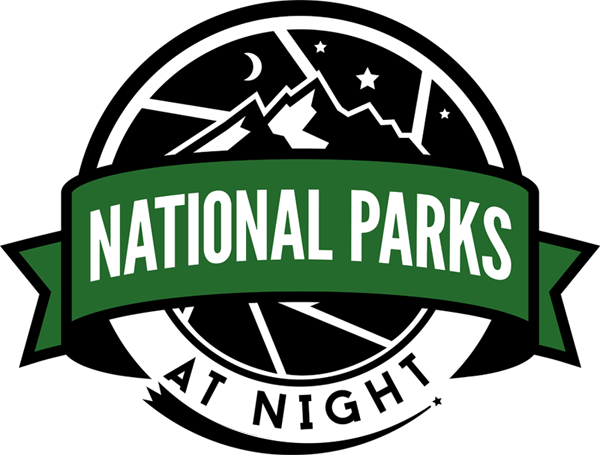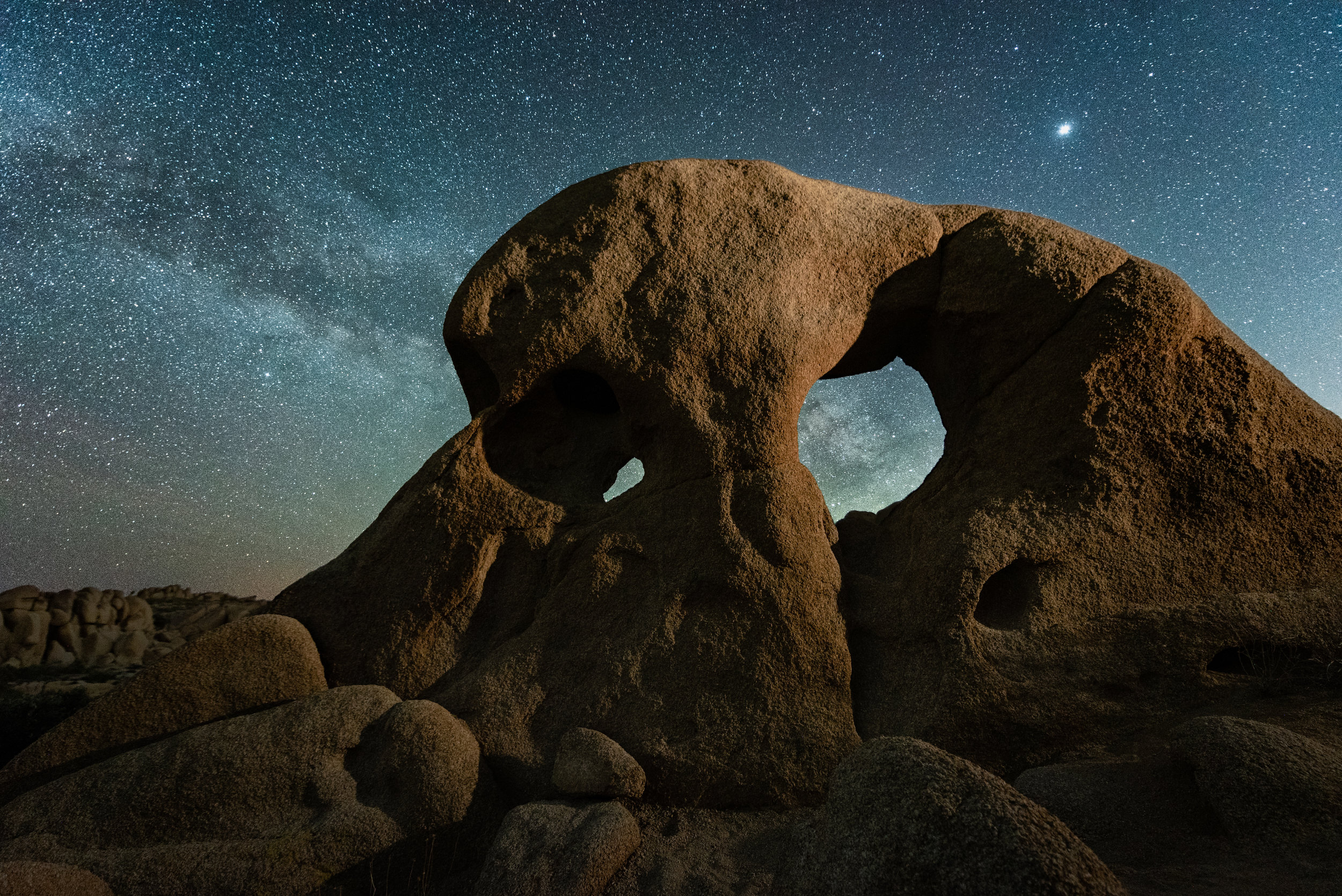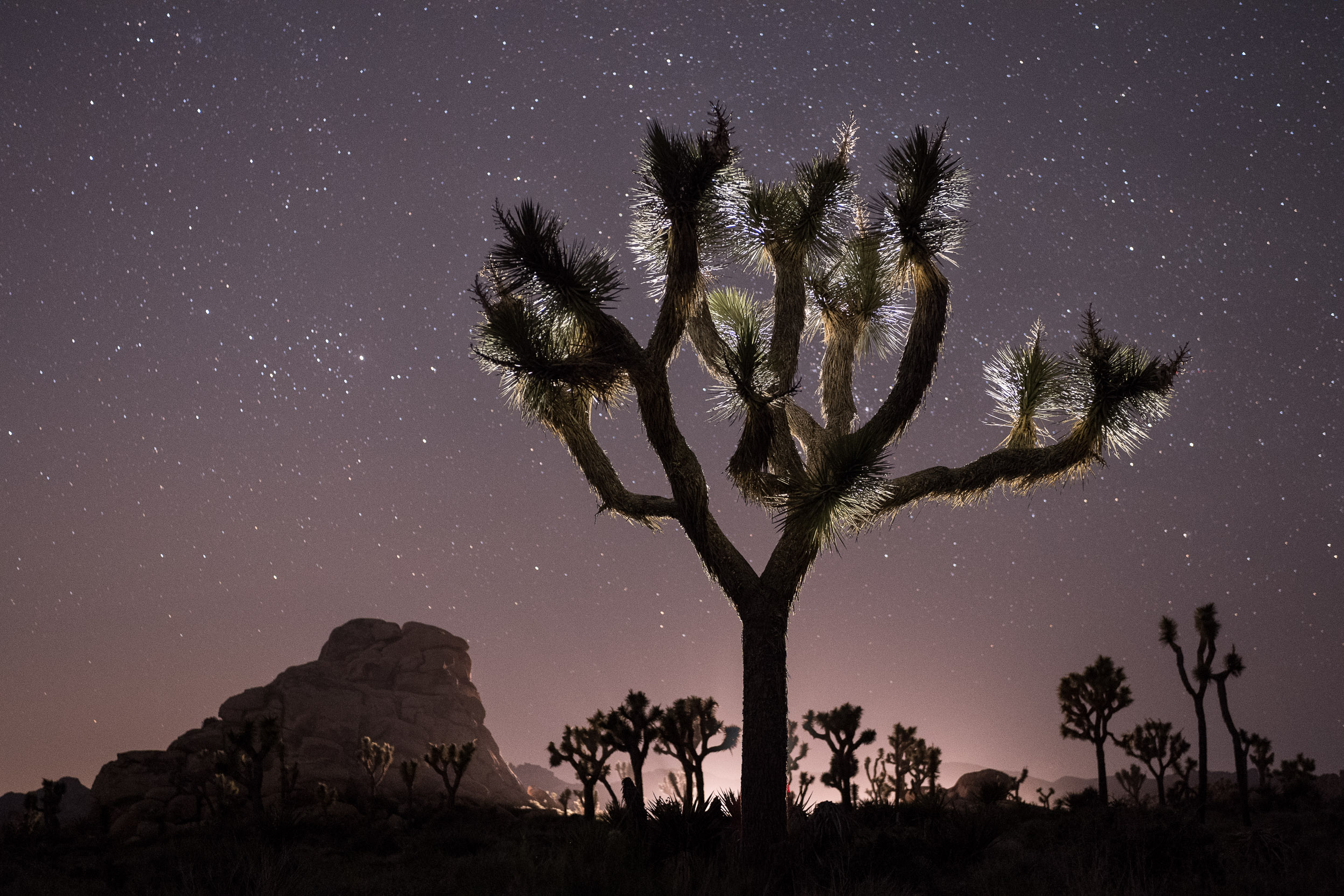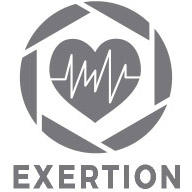Joshua Tree
Joshua Tree National Park encompasses sections of two different deserts—the Mojave and the Colorado—both full of opportunities for remarkable images. We will extensively explore this IDA Dark Sky Park. People come for the trees and bouldering on the rocks during the day, but at night these features take on a heightened surreality and make for great foreground subjects while the Milky Way stretches across the sky. We will also have special access to Keys Ranch, a photogenic “ghost ranch” that has several buildings, old cars and lots of machinery to light paint. The workshop will feature dark starry skies, Milky Way explorations, as well as a gentle waning moon that we can mix with our light painting to create wonderful night images.
Workshop Gallery
Workshop Details
May 2-7, 2021 — Completed
This is a 5-night, 6-day workshop. Your adventure begins on the morning of Sunday May 2, and ends after a final slideshow on the afternoon of Friday, May 7.
$1,750 + applicable taxes. Register below.
Skill level
Open to all who have an understanding of the basic principles of photography and of their cameras.
Class size
14, with 2 instructors — 7:1 ratio
NPS website
Our workshop mission is to explore every U.S. national park. As with all our Passport Series locations, it may be years (if ever) before we return to any specific park. If you have a dream of making epic long exposures at night at Joshua Tree, we hope you join us.
Workshop Leaders
Registration
THIS EVENT HAS PASSED. THANKS FOR YOUR INTEREST!
| • Deposit of $500 is required to reserve your spot at the workshop. |
| • Balance of $1,250 is due on February 1, 2021. —> Pay balance here. |
| • You may choose the “Pay in Full” ticket if you desire to pay all at once. |
| • Last day for a cancellation request is January 31, 2021 (see cancellation and refund policy). |
| • The workshop fee does not include park entrance fees, lodging, food, transportation to and from the airport, or transportation to shoot locations. |
The Joshua Tree Experience
Enormous in size, Joshua Tree National Park encompasses two deserts—the lower, hotter and drier Colorado Desert in the eastern half of the park; and the higher, wetter and slightly cooler Mojave Desert that makes up the western half of the park, which is home to the famous, twisted trees. The eastern half of the desert’s vegetation is dominated by creosote bush, cholla and ocotillo cacti, and the varied and often dramatic geology is a large part of the park’s appeal across all areas.
This six-day, five-night photography workshop in Joshua Tree National Park will take place during the waning quarter phase of the moon, which means we’ll have plenty of dark skies and Milky Way opportunities. This workshop is also ideal for those wanting to improve their light painting and Low-level Landscape Lighting (LLL), which will be a major component of this workshop. Weather-permitting, we also will have the opportunity to witness and capture the peak of the Eta Aquarids Meteor Shower on May 6.
Locations may include Keys Ranch ruins, Arch Rock, Skull Rock, Hidden Valley, and of course Joshua trees! We may also venture outside the park one night to photograph some of the many interesting sites in the area. Discoveries await.
This experience is for those looking to expand their photographic horizons, recharge their creative batteries and share ideas with friends and colleagues. We will create individual goals for each participant, and encourage you to blur the lines between night and day, consider why you photograph at night, and challenge you to make unique images that have deep personal meaning. Collaboration is a great way to make new discoveries and new friends, and will be a part of the experience. Working through image and lighting ideas together is a fun and rewarding process, and can give you that kick in the pants you’ve been looking for.
What You Should Know
Participants must have at least basic photo skills, know their cameras well, and be comfortable shooting RAW in manual mode with a DSLR or high-end mirrorless camera.
Night photography experience is not necessary, but even folks with extensive experience shooting at night will find this class challenging, stimulating and inspiring. For more advanced night photographers, we can offer a portfolio review and specific challenges and goals, and will offer guidance in the field if you mainly want to concentrate on creating portfolio images or learning more advanced techniques.
If you would like to attend this workshop but are unsure whether you have adequate night photography skills, we can offer pre-workshop tutoring to get you ready for your adventure with us. Alternatively or additionally, a few of us have written books that may be productive pre-workshop reads.
What You Will Learn
We hope to push you to step outside your comfort zone—to test the limits of what you and your camera can do. You’ll go home after the workshop with a solid grasp of night photography in a dark environment, and a good foundation in light painting techniques.
TOPICS COVERED WILL INCLUDE:
deep dive into Milky Way capture, creativity, and processing
how to photograph and edit star points, for display and for print
how to photograph and edit star trails
light painting
how to scout a national park using available resources and PhotoPills
and more …
This workshop will have both field and classroom instruction. We will be in the classroom each day, and out in the field at different locations each night. Participants can stay out shooting as long as they, or their camera batteries, hold out. While in the field, the instructors will demonstrate their own techniques and will work with participants one-on-one to make sure everyone gets the most out of the workshop. During classroom sessions, there will be presentations by the instructors, but we will focus on developing your images and sharing everyone’s work and ideas with each other. Each day we will review the previous night’s work.
Our locations have generous room to explore, so everyone will be able to spread out and not get in one another’s way. Each participant will have the opportunity to work one-on-one with Gabe and Matt in the field.
We do not tell our attendees what to photograph, and won’t line you up in a row to all shoot the same thing (unless it’s helpful to get some people on track). Instead, we encourage you to use what you have learned to create your own unique images, and to let us guide you through the process should you desire. We do not teach you to do what we do, but rather how to develop your own night vision.
Night Conditions
Travel
Joshua Tree is very accessible—45 minutes from Palm Springs and 3 to 4 hours from either Los Angeles or Las Vegas.
You will need a rental car. There is no need for four-wheel-drive for the main portion of the workshop, but if you intend to drive on some of the gravel roads around the park, you will at least want an all-wheel drive car with a little clearance (not necessarily high-clearance). If you are interested in carpooling or sharing a rental car, let us know and we will try to connect you with another attendee looking for the same. You are responsible for arranging and paying for your own transportation.
Nearby Airports:
Palm Springs (PSP) — 45 minutes to Twentynine Palms
Los Angeles (LAX) — 3 hours
Las Vegas (LAS) — 3 to 4 hours
Food & Lodging
The workshop base camp will be in Twentynine Palms, California. Once you make your deposit, you will receive a hotel group code that can be used to reserve a room. The group reservation is for six nights, from May 1 to check-out on May 7.
There are other lodging options in Twentynine Palms, or camping in the park if you prefer, but there are no showers in any of the park’s campgrounds.
Twentynine Palms has a handful of food options, including groceries. We encourage eating two meals per day—a good late breakfast and a great late lunch. When on the night shoots, you may wish to bring snack food or a sandwich and plenty of water.
You are responsible for arranging and paying for your own meals and accommodations.
Weather
The temperature should be moderate, with daytime temperatures in the upper 80s F, and nighttime lows in the upper 50s.
Recommended Attire
Shorts and short-sleeve shirts for daytime, light pants and long-sleeve shirts for night. A sweatshirt and medium-weight jacket will likely be useful, and a base layer might not be a waste of packing space. Comfortable and protective shoes are recommended for getting around—quality trail shoes or hiking boots would be optimal.
Considerations
No vigorous activity will be required during the workshop, but please consider your physical abilities prior to registering. There won’t be any long hikes, but there will be trails and cacti to avoid, and you should be comfortable carrying your own equipment over uneven ground in the dark.
Please read our FAQs section for more information about skill and gear requirements, and other information that pertains to all our workshops.
If you have questions, please contact us—we're happy to talk it over with you.
Digging deeper into the Desert ...
“ I felt like the Lorax speaking for the trees, needing to tell their stories as the celestial bodies circled above.”
Joshua Tree has always been a place to escape and get away from it all. But instead of landing in some lush location with trees, lakes and mountains … you’ve landed on Mars.
Furry, animal-like trees stretch up out of the red desert sands. Big bouldering rocks look like sunken sculptures from an ancient civilization that worshiped the sun and the moon. It is a beautifully surreal place to explore during the day, and that surreality is only heightened under the stars.
The first time I visited, it was all about the Joshua trees. I felt like the Lorax speaking for the trees, needing to tell their stories as the celestial bodies circled above. That, and the constant playlist of U2, led to a wonderful introduction to the park.
On my second visit, it was all about the rocks. Skull Rock is impressive, but literally only scratches the surface of the wild geology that spikes above the desert floor. The further I ventured, the more I discovered towering rocks that gave way to smaller ones that reached out to form skeletal arches. I find it hard to believe that Salvador Dali never visited this park—you feel like you are in one of his hallucinatory paintings (minus the melting clocks).
This is an easy park in which to get overpowered with inspiration. The biggest advice I can give is to slow down, focus on a smaller moment, and fully immerse yourself in that time.
The amazing rocks, trees and wildlife that come together at the convergence of these two deserts make for a truly memorable experience that will continue to evolve each time you visit. I look forward to seeing and sharing what secrets Joshua Tree reveals this time.

























